Listen Now
Conversation themes
- The Value of Outliers
- Social Norms and Conformity
- Autism and Neurodivergence
- Personal Identity and Reclamation
- Mutability and Change
Recorded 25 January 2024
Episode Intro
For me, being an outlier and being different means understanding and respecting the parts of us that are not necessarily reinforced or seen as being useful, meaningful.
Outliers in a dataset are usually discarded. I think this is the same in society too – if something falls outside that normal range of the bell curve, we look at it as extraneous and as something that doesn't really belong to the regular dataset, because look at all these other pieces of data that are all here comfortably in the normal range, and then there's one over here.
In reality I think that the outliers tell such a bigger story of the dynamic learning experience that we have as humans. And I think that they need to be included in the data set. I think that they can actually inform the data set.
Embracing that means taking those parts of self that we've been encouraged to abandon or believe that they were not useful, valuable, likeable, and reincorporating those, reclaiming them in a way that is useful and valuable in showing people, what they were missing.
You’re listening to the Still Curious Podcast with me, Danu Poyner, the show where I meet people who insist on relating to the world with curiosity and care and talk to them about the red thread that runs through their life story and which ultimately empowers them to flourish as their unrepeatable selves.
The voice you just heard belongs to my guest today, Brittany Cole Houston, a silversmith, non-traditional educator, and the creative force behind Full Desert Weirdo.
Brittany was raised in a unique and diverse family environment that was far from the conventional. Her grandmother ran a foster home, leading to a household filled with individuals from various backgrounds, abilities, and ages. This early exposure to diversity meant Brittany grew up knowing love and family in a context that transcended biological connections. It instilled in her a profound sense of empathy and an understanding of the spectrum of human experience.
Mutability is a very important thing. Being able to have the freedom to change and to change your mind, your ideas, is very important to me and I think it's very important to humans in general. It's an important aspect of growth.
The word weird is part of it. 'Wyrd', the Germanic root, is related to turning, to spinning something, and that's why I refer to a lot of things as weirding. When we call someone weird, it became a really beautiful thing because I realised, oh, this is exactly like what I like about myself, that I can change all of the time.
Everybody's weirding all the time. That's what I really believe. We are all constantly in a state of becoming.
From a young age, Brittany found herself at odds with the teachings and expectations of the LDS (Latter-Day Saints) church, into which she was born. She questioned the rigid doctrines and gender roles prescribed by the church, feeling a deep misalignment with its values, especially regarding expectations placed upon her as a young woman in the LDS community.
Her curiosity about other religions and belief systems, coupled with a strong sense of justice and equality, clashed with the teachings of the LDS church, leading to feelings of isolation and a quest for a belief system that resonated with her inner truth.
Her journey through education was marked by a refusal to settle into any one discipline, reflecting a restless spirit and a deep desire for a comprehensive understanding of the world and her place within it. She ventured into various fields of study, from philosophy to theatre and film, but it was a serendipitous encounter with a friend that prompted a threshold moment. Recognising Brittany's intrinsic empathy, understanding of diversity, and her unique upbringing in a non-traditional family, her friend suggested that Brittany might find fulfilment and purpose in working with children with autism.
Encouraged and driven by a newfound sense of purpose, Brittany took a leap into the unknown. She began working one-on-one with autistic children, employing Applied Behaviour Analysis (ABA) and other educational strategies to support their development. This work was not just a job for Brittany; it was a calling. She saw in these children the same desire for acceptance and understanding that she had longed for throughout her life, and this would lead to over two decades working in the field of autism.
If you ask a person with autism if they feel like they're disordered, the answer's not always going to be yes. If you ask them do they feel different, the answer will likely be yes. But it's not necessarily a disorder.
I would say that it's a collection of behaviours that lie outside of the normal range, but the way that I've been trained, the ways that I've worked in the field, are to take that diagnosis and throw it out the window and look at the person. What are their collection of behaviours? Excesses? Deficits? What can they do and not do? What do they need to be able to do in order to take care of themselves, and get their needs and their wants met?
One of the reasons I chose to leave was because it felt like I worked with so many amazing, intelligent beings that nobody treated as intelligent.
Throughout her tenure in the autism field, Brittany became increasingly aware of systemic issues that often prioritised conformity over genuine understanding and acceptance of neurodivergent individuals. The work had became a significant part of her identity, but her journey was marked by a growing moral dissonance as she grappled with the realisation that her work, in its existing framework, might inadvertently contribute to narratives and practices she fundamentally disagreed with.
Brittany recognised that continuing in a system that conflicted with her core values was unsustainable, both professionally and personally. The decision to leave the autism profession was not made lightly. It was the culmination of a deeply personal and painful process of acknowledging the moral injury she experienced.
And so, she changed.
Leaving the structured world of autism education propelled Brittany into a new phase of life in which she embraced the fluidity of her creative pursuits, exploring new forms of expression and connecting with the natural world through herbalism and plant medicine. Her journey also led her to reconnect with spirituality, moving from atheism to finding solace and inspiration in animism and deep ecology, further enriching her understanding of herself and her place in the world. She became a death doula, providing emotional, spiritual, and practical support to people and their families during the dying and mourning process.
This transition was not just about leaving a profession but about moving towards a more holistic and authentic expression of her commitments to fostering understanding, compassion, and acceptance in every aspect of human experience.
In retrospect, another threshold moment arrived with a gift from her mother—a silversmithing kit that unlocked a new realm of creativity and self-expression. This marked the beginning of her journey into crafting and the eventual creation of Full Desert Weirdo.
As a silversmith, Brittany finds a unique relationship with a material that is as mutable as she is, creating pieces that are not just objects of adornment but extensions of her being and interactions with the world.
Ultimately Brittany realised she had been wanting to deviate from the norms since birth. Not ever wanting to be like other people, but then also struggling, not fitting in right, and not feeling like there was a sense of belonging.
The launch of her brand was not just about jewellery making; it is a reminder of the power of weirding—of turning, spinning, and transforming into something new. It's about the courage to step into the unknown, to let go of what no longer serves us, and to boldly claim our space in the spectrum of existence.
When I gave myself full permission to be as weird as I wanted, I finally understood that I could have been doing this the whole time. I could have been having fun, I could have been being myself this entire time.
Initially my mom was like, but why do you have to call it Full Desert Weirdo? She was like, I don't think you're a weirdo. I'm like, well, maybe you don't mom, but other people do and I know I am.
Talking to Brittany opened a whirlwind of possible conversation paths. At first I found myself getting flustered that we couldn’t explore them all, but then I realised that if we sat down to record it again, no matter how many times, I’m sure what came up would be always different but somehow never changing. And isn’t that just an invitation to appreciate the sanctity and significance of the version of existence we do get to enjoy.
Join us as Brittany Cole Houston guides us through her beautiful, ever-evolving landscape, inspiring us to question, to grow, and to embrace the fullness of our own weird, wonderful selves. That’s after the music, on today’s episode of the Still Curious Podcast.

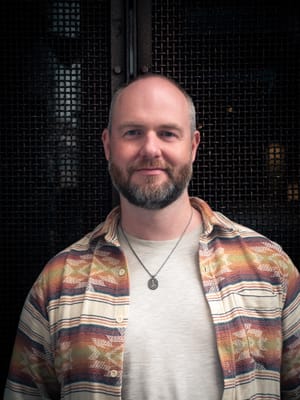
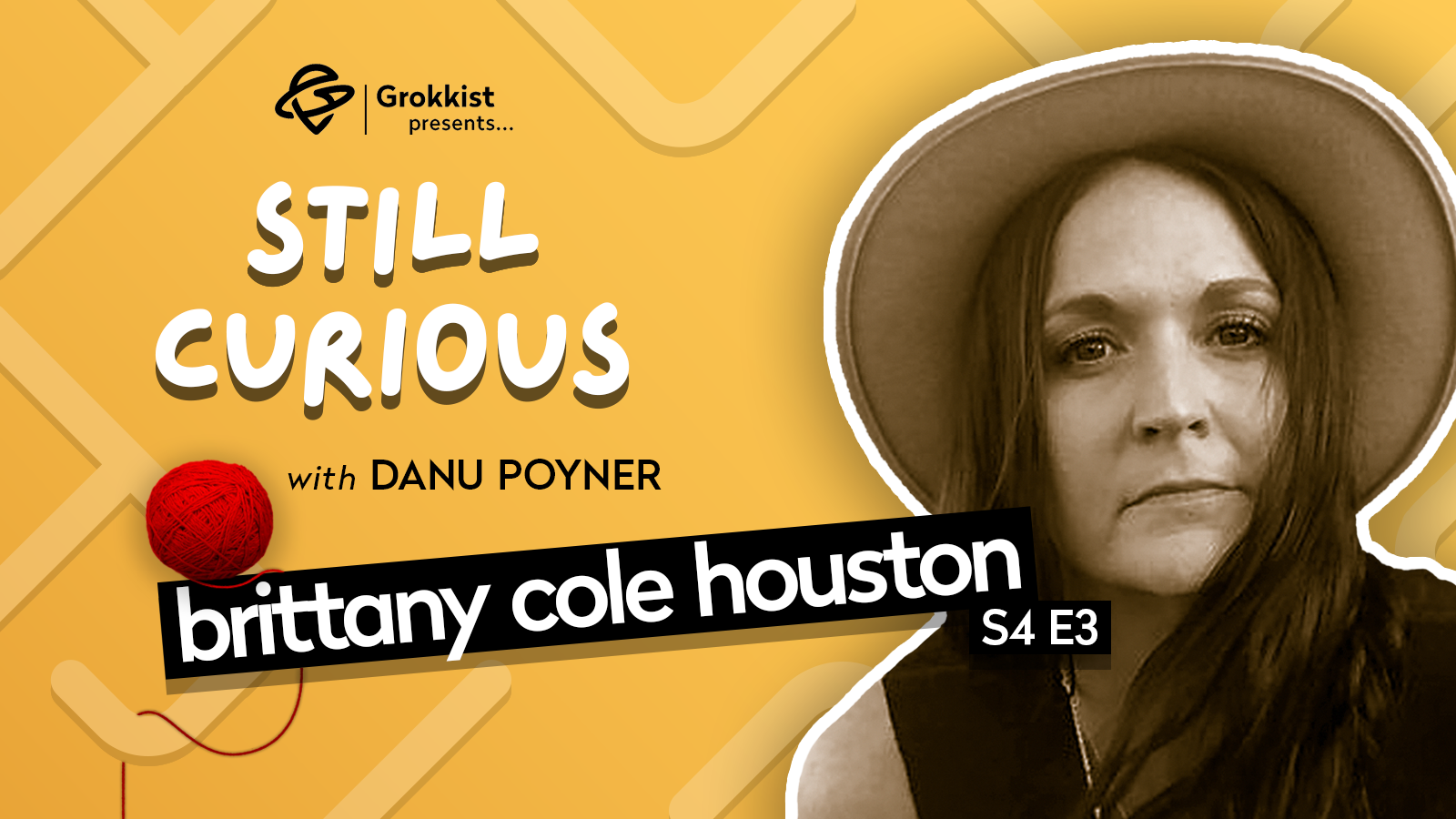
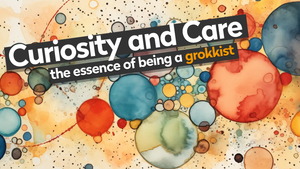


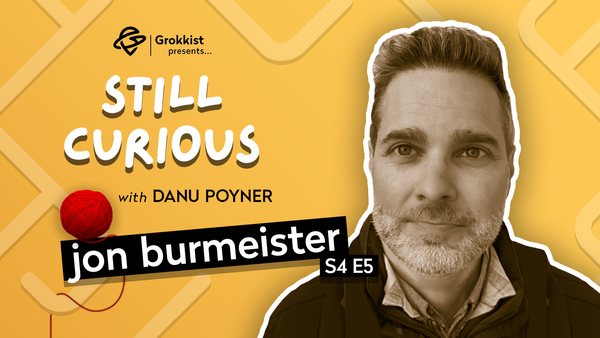
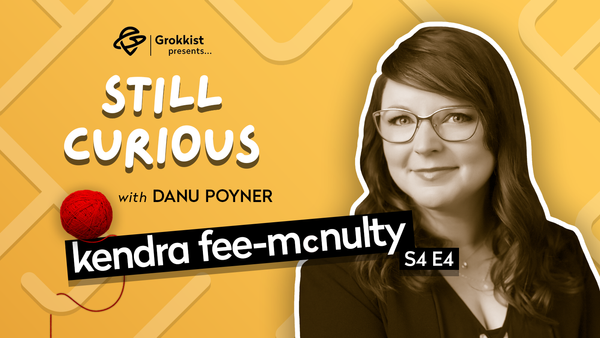
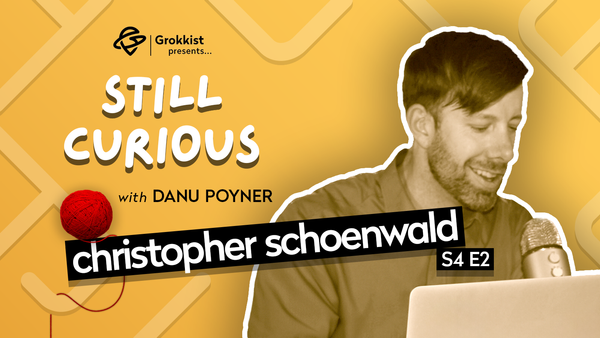
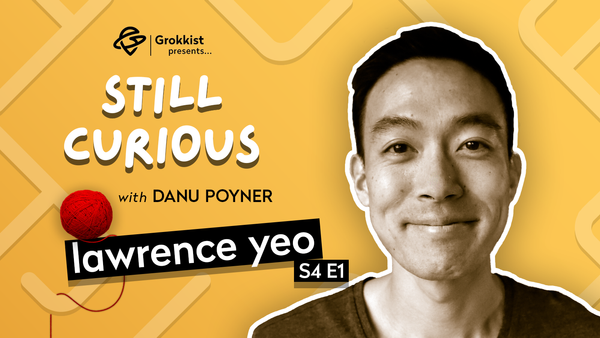
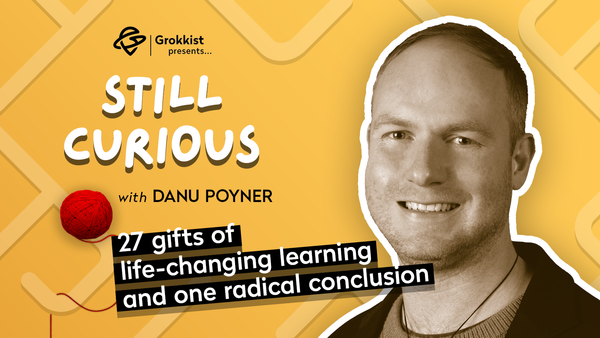
Member discussion